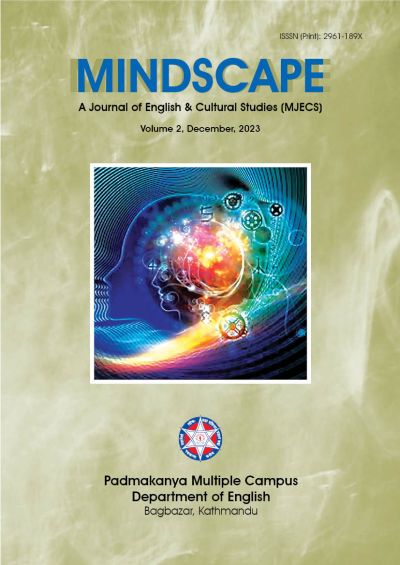Carlos Bulosan’s America is in the Heart: Witnessing American Colonialism in Asia
DOI:
https://doi.org/10.3126/mjecs.v2i1.61725Keywords:
colonialism, racism, Filipino American, bildungsroman, aporiaAbstract
Carlos Bulosan’s America Is In the Heart (first published in 1943) is a masterpiece of autobiographical fiction about the Asian American (specifically the Filipino American) immigrant experience. Its setting is the Philippines and the western United States (particularly California) during the years between World War I and World War II. Its structure is patterned after the success story trajectory of the bildungsroman that culminates in the protagonist’s attainment of the American Dream. But the narrative matter of America Is In the Heart forms an unrelenting witness to the persistence of pernicious American colonial policies vis-à-vis the military, land ownership, and education which exists alongside the ubiquitous demeaning prejudices of racism and classism permeating American attitudes and behavior. This narrative testimony prompts the attentive reader to interrogate the achievability of the American Dream for Bulosan’s first-person narrator-protagonist. Many readers, therefore, come away from a scrutiny of Bulosan’s book with a sense of aporia, a tension that paradoxically adds a layer of complexity to this canonical text even as it may disrupt its ostensibly conventional bildungsroman template.




